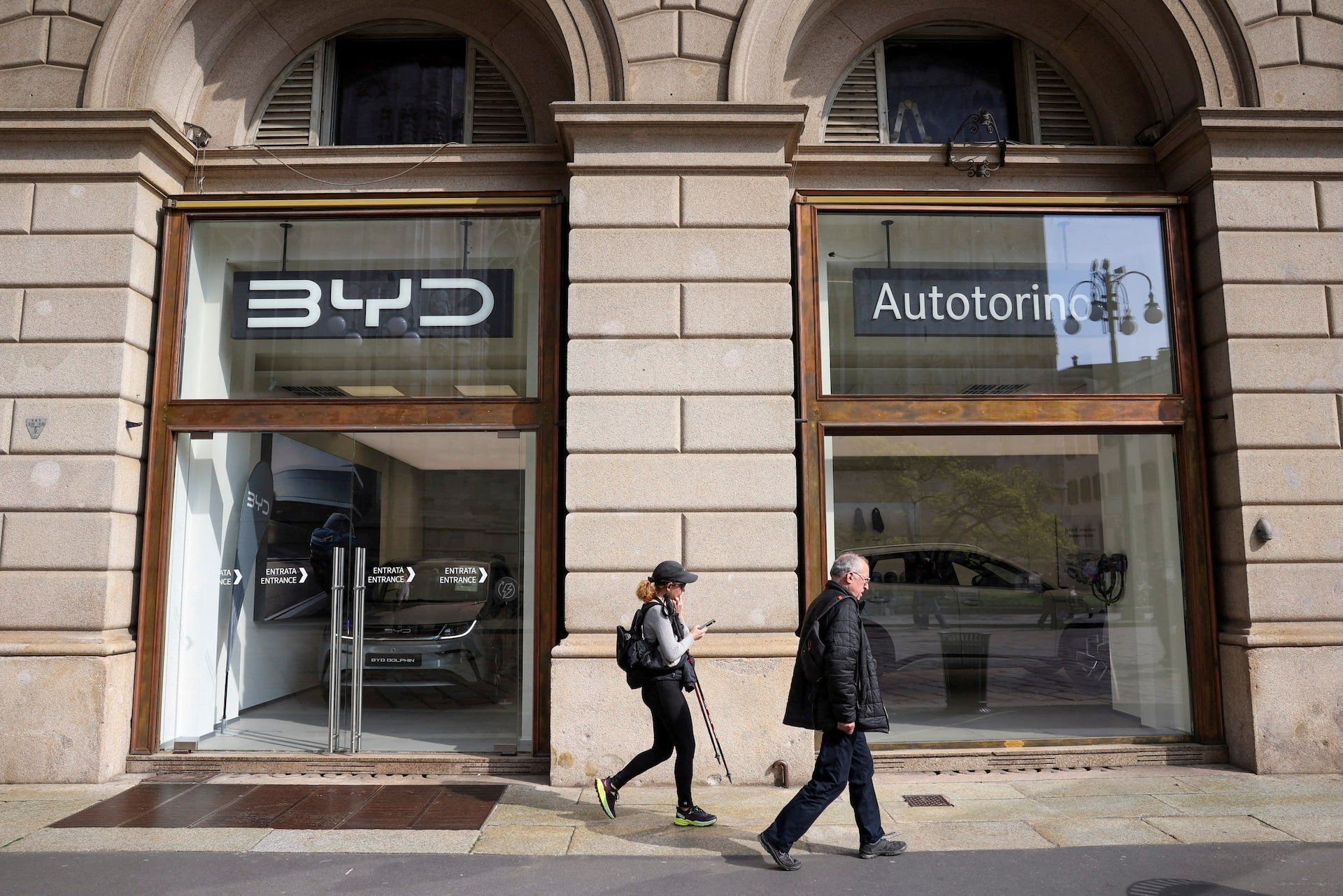The EU is expected to slap tariffs on Chinese-made electric vehicles this week, citing a months-long investigation into Beijing’s subsidies for EV manufacturers.
The move comes amid wider EU-China trade tensions over green technologies like EVs, solar panels, and batteries, where China has become a major low-cost producer whose exports often undercut those of Western competitors.
The EU says China is unfairly subsidizing producers and “dumping” goods in Europe that it can’t sell at home because of weak consumer demand.
China says it’s being unfairly punished for being too good at producing precisely the products the West claims it wants to meet its climate goals.
Experts doubt the tariffs will be big enough to dent sales. Chinese EVs are relatively cheap in the EU, starting at around $32,000.
But China could retaliate against EU industries. Chinese media say local firms want Beijing to consider EU subsidies for European brandy, dairy products, and pork.
If the Europeans try to unplug Chinese EVs, expect Beijing to clap back fast with tariffs of its own on those industries, upping the ante in a trade dispute between the world’s largest exporter (China) and the world’s largest advanced consumer market (the EU).
